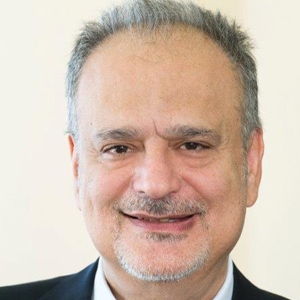Michel Accad, who took over as CEO at Al Ahli Bank Kuwait in May 2014, talks toGlobal Finance about why the Kuwait banking system remains solid despite falling oil prices and other pressures.

Global Finance: Kuwait’s financial sector is sound, while nonperforming loans have declined. How long can the banking system remain resilient in deteriorating conditions?
MICHEL ACCAD: The banking system is very strong and one of the reasons has been the support of the Central Bank. They formally guarantee all deposits with banks, so the banks are pretty solid to start with, generally speaking. On the nonperforming loans, they are down (but) there are a number of loans which are still performing that have been discovered, and therefore there is some fragility there because those loans can become nonperforming at any time. So even though the NPL’s are down, there is some question as to whether this is sustainable. The banks however, have added—for the past four or five years—a large amount of precautionary provisions on their books to protect against future rainy days.
GF: The country’s fiscal and current accounts have been adversely affected by the low oil prices …
MA: Yes, but Kuwait is the country that has the lowest break-even price for its budget deficit for oil. In other words, even if oil is at around $40 a barrel, then the country can sustain this price forever without having to particularly curtail its government expenditures.
GF: The government wants to tap international bond markets for $10 billion in 2017. Can it do this without creating a secondary debt market first?
MA: For the bonds that they are planning to issue, a large part of them would be sovereign bonds in dollars. Therefore, there will automatically be a secondary market outside of Kuwait for those bonds.
They also plan a local currency bond issue. For that they would need to help create a secondary market. If the local currency bonds are priced fairly, the secondary market will create itself. Banks can then trade them. They are already issuing local currency bonds right now.
GF: Given the role of small and midsize enterprises in economic diversification, is Al Ahli doing anything in particular to facilitate lending to these companies?
MA: In Kuwait, unlike many other countries, the lending cap is rather tight. Banks are only allowed to lend—whether to SME’s or corporations—at no more than a 3% spread. A 3% spread might be good for a corporate name but it is not good for an SME business because there are a lot of costs involved. If you want banks to be induced to go there, you need to give them either a larger spread or you need to subsidize the loans to SMEs, and in my view it is generally not a good idea to give subsidies.
GF: Is the banking system there going be affected by rising US interest rates?
MA: Frankly, no. In the US the impact is obviously much more direct. Here I think it makes a difference, but the difference is marginal. The difference is mostly borne by the customers, especially the creditors.
GF: Can plans to create more private-sector jobs for Kuwaitis succeed without making public-sector jobs less attractive?
MA: The problem is that there are just so many pressures, political pressures or pressures from various lobbies and pressure groups, meaning that I don’t think there is an easy solution to this.



